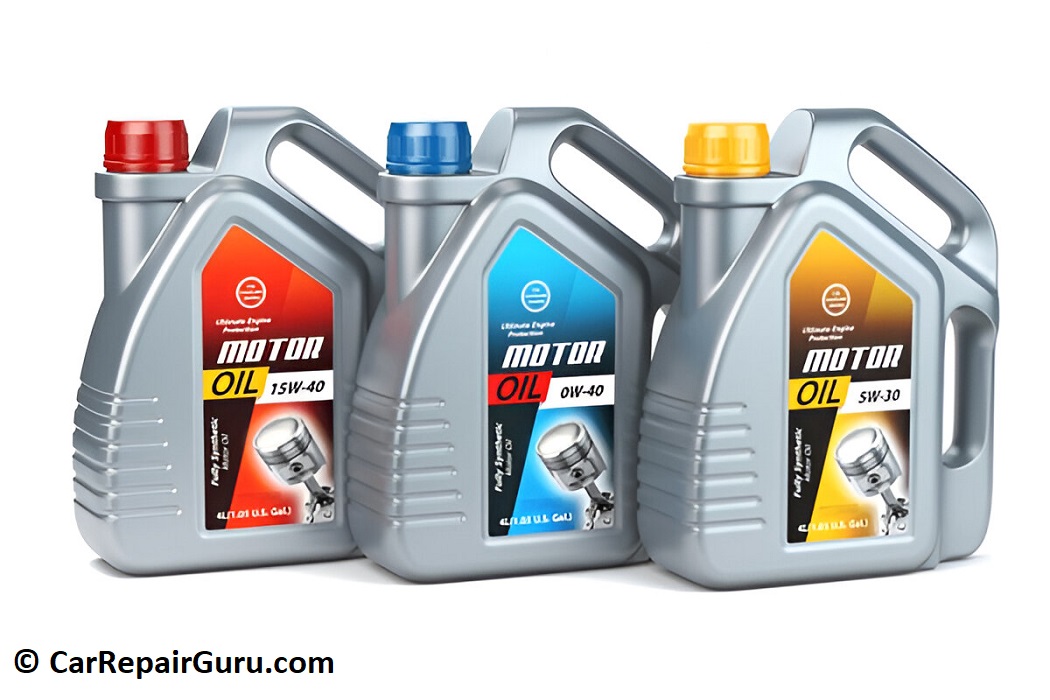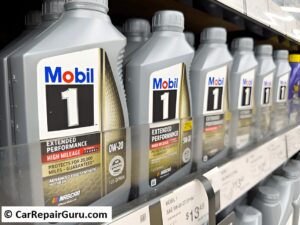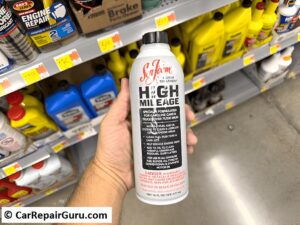
Motor oil is the lifeblood of your engine, playing a crucial role in keeping it running smoothly and efficiently. Choosing the right oil type isn’t just about preference—it directly impacts your car’s performance, fuel efficiency, and longevity. Whether you’re driving in extreme weather, covering long distances, or simply commuting daily, the right oil ensures proper lubrication, minimizes wear and tear, and prevents overheating.
But with so many options—conventional, synthetic, synthetic blend, and high-mileage oil—how do you know which one is best for your car? The answer depends on various factors, including your vehicle’s make and model, driving conditions, and manufacturer recommendations. Understanding the differences between these car oil types will help you make an informed decision that protects your engine and enhances performance. In this guide, we’ll break down each type, explain oil viscosity ratings, and help you choose the best motor oil for your specific needs.
Conventional Motor Oil
Conventional motor oil, also known as mineral oil, is the most basic type of engine oil. It is derived directly from crude oil and undergoes minimal refining, making it a cost-effective option for many drivers. This type of oil contains essential additives that help reduce friction, prevent sludge buildup, and provide adequate lubrication for engine components.
Ideal Usage Scenarios and Benefits
Conventional oil is best suited for older vehicles, light-duty cars, and drivers with regular commuting habits. It works well in engines that don’t require high-performance lubrication and is often recommended for standard driving conditions. One of its biggest advantages is affordability, making it an attractive choice for budget-conscious vehicle owners. Additionally, it meets the needs of many manufacturers’ specifications and is widely available.
Potential Drawbacks
Despite its benefits, conventional motor oil has some limitations. It breaks down faster than synthetic oils, requiring more frequent oil changes—typically every 3,000 to 5,000 miles. It also struggles in extreme temperatures, becoming too thick in cold weather and too thin in high heat, which can reduce engine efficiency. Over time, conventional oil may contribute to sludge buildup, particularly in high-mileage engines. If you drive in harsh conditions or want better engine protection, you may need to consider synthetic or synthetic blend alternatives.
Synthetic Motor Oil

Synthetic motor oil is a highly refined lubricant engineered for superior engine protection and performance. Unlike conventional oil, which is derived directly from crude oil with minimal processing, synthetic oil is chemically formulated to provide consistent molecular structure, reducing impurities and enhancing lubrication. The manufacturing process involves refining base oils and adding advanced additives to improve viscosity, thermal stability, and wear protection.
Advantages Over Conventional Oil
One of the biggest advantages of synthetic oil is its ability to perform well in extreme temperatures. It remains fluid in freezing conditions, ensuring a smooth start in cold weather, and resists breaking down under high heat, preventing engine deposits. This makes it ideal for high-performance vehicles, turbocharged engines, and cars operating in harsh climates.
Additionally, synthetic oil offers better lubrication, reducing friction between engine parts, which can extend engine life. It also resists oxidation and sludge formation, keeping the engine cleaner for longer periods. As a result, synthetic oil generally requires fewer oil changes, with intervals extending up to 7,500–15,000 miles depending on manufacturer recommendations.
Considerations: Cost and Vehicle Compatibility
While synthetic oil provides superior performance, it comes at a higher price than conventional oil. However, the extended oil change intervals and enhanced engine protection can offset the cost over time. Most modern vehicles are compatible with synthetic oil, but older engines designed for conventional oil may not fully benefit from its properties. Always check your owner’s manual to ensure compatibility before making the switch.
Synthetic Blend Motor Oil
Synthetic blend motor oil is a combination of conventional and synthetic oils, offering a middle ground between affordability and performance. It contains a mix of highly refined synthetic base oils and traditional mineral oil, along with performance-enhancing additives. This blend provides improved engine protection and durability compared to conventional oil while remaining more budget-friendly than full synthetic options.
Benefits of Combining Synthetic and Conventional Oils
By blending synthetic oil with conventional oil, this type of motor oil offers enhanced resistance to oxidation and thermal breakdown, reducing engine wear and extending oil life. It also provides better performance in extreme temperatures, offering improved flow in cold weather and better heat resistance in high temperatures. Additionally, synthetic blend oil helps minimize sludge buildup and enhances fuel efficiency compared to conventional oil.
Suitable Vehicle Types and Driving Conditions
Synthetic blend motor oil is ideal for vehicles that need more protection than conventional oil can offer but don’t necessarily require full synthetic oil. It’s a great option for SUVs, light trucks, and vehicles used for towing or hauling. Drivers who frequently experience stop-and-go traffic, heavy loads, or varying weather conditions can benefit from its superior protection without the higher cost of full synthetic oil. Always check your vehicle’s manufacturer recommendations to determine if a synthetic blend is the right choice for your engine.
High-Mileage Motor Oil

High-mileage motor oil is specifically designed for vehicles with over 75,000 miles on the odometer. It contains unique additives and seal conditioners that help protect aging engines, reduce oil consumption, and extend engine life. This specialized oil is available in conventional, synthetic blend, and full synthetic formulations, allowing drivers to choose the right balance of performance and affordability for their vehicle’s needs.
Benefits for Older Vehicles
As engines age, they are more prone to wear, oil burn-off, and leaks due to deteriorating seals and gaskets. High-mileage oil helps address these issues by:
- Reducing Oil Burn-Off: Its thicker viscosity and anti-wear additives help maintain lubrication and prevent excessive oil consumption.
- Preventing Leaks: The added seal conditioners rejuvenate aging gaskets, reducing the likelihood of oil leaks.
- Minimizing Sludge Buildup: High-mileage oil contains detergents that help clean the engine and prevent harmful deposits from forming.
When to Consider Switching to High-Mileage Oil
If your vehicle has exceeded 75,000 miles and you notice oil leaks, increased oil consumption, or engine noise, switching to high-mileage oil can help maintain performance and extend engine life. Additionally, if you plan to keep your car for many more years, high-mileage oil can provide long-term protection against wear and tear. Always consult your owner’s manual or a trusted mechanic before making the switch.
Understanding Oil Viscosity and Grades
What is Oil Viscosity and Why Does It Matter?
Oil viscosity refers to the thickness or flow resistance of motor oil. It determines how well the oil can lubricate engine components under different temperatures. A lower viscosity oil flows more easily, ensuring quick lubrication during cold starts, while higher viscosity oil provides better protection at high temperatures by maintaining a thicker film between moving parts. Choosing the right viscosity is crucial for optimal engine performance, fuel efficiency, and longevity.
SAE Grading System: What Do the Numbers Mean?
The Society of Automotive Engineers (SAE) developed a grading system to classify motor oil based on viscosity. Common examples include 5W-30, 10W-40, and 0W-20. The numbers indicate oil behavior at different temperatures:
- The first number (e.g., “5W”) represents cold-weather performance. The lower the number, the better the oil flows in cold conditions (W stands for winter).
- The second number (e.g., “30”) indicates the oil’s viscosity at high operating temperatures. A higher number means thicker oil, which provides better protection in hot conditions.
How to Choose the Right Viscosity for Your Vehicle
Your vehicle’s owner’s manual specifies the recommended oil viscosity. Factors like climate, driving conditions, and engine type also play a role. In colder regions, a lower winter rating (e.g., 0W or 5W) helps with cold starts, while hotter climates may benefit from a higher viscosity oil (e.g., 10W-40) for better protection. Always follow manufacturer recommendations to ensure peak engine performance and longevity.
Manufacturer Specifications and Standards

Why Following Manufacturer Oil Recommendations Matters
Using the correct motor oil is essential for maintaining engine performance, fuel efficiency, and longevity. Vehicle manufacturers conduct extensive testing to determine the best oil viscosity and formulation for their engines. Adhering to these recommendations ensures proper lubrication, prevents excessive wear, and helps avoid costly engine damage. Using the wrong oil can lead to poor engine performance, increased fuel consumption, and even voided warranties.
Key Oil Standards: API, ACEA, and ILSAC
Motor oils must meet specific industry standards to guarantee quality and performance:
- API (American Petroleum Institute): API classifications like SN, SP indicate oil quality, wear protection, and compatibility with modern engines.
- ACEA (European Automobile Manufacturers’ Association): ACEA standards focus on European vehicles, considering factors like emissions control and extended drain intervals.
- ILSAC (International Lubricants Standardization and Approval Committee): ILSAC standards (e.g., GF-6A, GF-6B) ensure fuel efficiency, emissions reduction, and engine cleanliness, mainly for North American vehicles.
Where to Find Your Vehicle’s Oil Specifications
Your car’s oil specifications can be found in the owner’s manual, on the oil cap, or on a label inside the engine bay. Many manufacturers also provide recommendations on their websites. Always match the viscosity grade and certification marks to ensure your engine gets the right protection.
Factors to Consider When Choosing Motor Oil
Selecting the right motor oil isn’t just about picking any bottle off the shelf—it depends on several key factors that impact your engine’s performance and longevity. Understanding these factors ensures your vehicle receives the best protection and efficiency.
Driving Habits and Conditions
Your daily driving habits play a crucial role in determining the best oil type for your vehicle. If you drive short distances or frequently stop and start in city traffic, your engine may not reach optimal operating temperature, leading to sludge buildup. In this case, synthetic or synthetic blend oil with strong detergent properties can help keep your engine clean. On the other hand, if you drive long distances, tow heavy loads, or operate in high-performance conditions, a full synthetic oil with high-temperature stability is ideal for reducing wear and tear.
Climate and Seasonal Considerations
Motor oil viscosity changes with temperature. In cold climates, a lower viscosity oil like 0W-20 or 5W-30 ensures smooth engine startup and lubrication. In hot regions, a thicker oil like 10W-40 provides better protection against heat and prevents thinning. If you experience extreme seasonal changes, consider using an all-season oil that adapts to different temperatures.
Vehicle Age, Mileage, and Engine Type
Older engines with high mileage (over 75,000 miles) may benefit from high-mileage oil, which contains seal conditioners to prevent leaks and reduce oil burn-off. Turbocharged or performance engines require full synthetic oil for maximum protection. Always check your owner’s manual to match the best oil type to your engine’s specific needs.
Common Myths and Misconceptions About Motor Oil

Motor oil is one of the most misunderstood aspects of vehicle maintenance. Many outdated beliefs still influence drivers’ decisions, often leading to unnecessary expenses or improper engine care. Let’s debunk some of the most common myths.
Myth #1: “You Must Change Your Oil Every 3,000 Miles”
While this was true decades ago, modern engine technology and advanced oil formulations have extended oil change intervals significantly. Most vehicles today can go 5,000 to 10,000 miles between oil changes, and some high-performance synthetic oils last up to 15,000 miles. Always refer to your owner’s manual for the correct oil change frequency.
Myth #2: “Synthetic Oil Causes Leaks in Older Engines”
This misconception comes from early synthetic oils, which contained esters that could cause seal shrinkage. Modern synthetic oils are formulated with seal conditioners that prevent leaks rather than cause them, making them safe for both new and old engines.
Myth #3: “Once You Use Synthetic Oil, You Can’t Switch Back”
There’s no harm in switching between synthetic and conventional oils, as long as they meet your engine’s requirements. In fact, synthetic blend oils are a combination of both. The key is using the right oil viscosity and quality specified by your vehicle manufacturer.
Understanding these myths helps drivers make informed decisions, ensuring better engine protection and cost-effective maintenance.
Conclusion
Choosing the right motor oil is essential for maintaining your vehicle’s performance, efficiency, and longevity. Throughout this guide, we’ve explored the different types of motor oils—conventional, synthetic, synthetic blend, and high-mileage oils—and discussed their unique benefits and ideal usage scenarios. We also covered important factors like oil viscosity, industry standards, driving habits, climate conditions, and vehicle age, all of which play a crucial role in determining the best oil for your engine.
To ensure optimal protection and performance, always refer to your owner’s manual for the manufacturer’s recommended oil type, viscosity, and change intervals. If you’re unsure, consulting a trusted mechanic or oil specialist can help you make the best choice based on your driving conditions and engine needs.
Regular oil changes with the right motor oil will keep your engine running smoothly, prevent unnecessary wear and tear, and extend the life of your vehicle—saving you time and money in the long run.
Frequently Asked Questions
Q1: What is the difference between synthetic and conventional motor oil?
A1: Synthetic oil is artificially engineered to provide superior performance and protection, especially in extreme temperatures, compared to conventional oil, which is refined from crude oil.
Q2: Can I switch from conventional to synthetic oil?
A2: Yes, most vehicles can switch between conventional and synthetic oils without issues. However, it’s advisable to consult your owner’s manual or a professional mechanic before making the switch.
Q3: How often should I change my motor oil?
A3: Oil change intervals depend on the type of oil used, driving conditions, and manufacturer recommendations. Typically, synthetic oils offer longer intervals between changes compared to conventional oils.
Q4: What does the oil viscosity rating mean?
A4: The viscosity rating (e.g., 5W-30) indicates the oil’s thickness and its ability to flow at different temperatures. The first number represents cold temperature performance, while the second denotes high-temperature performance.
Q5: Is high-mileage oil necessary for older cars?
A5: High-mileage oils are formulated with additives that help reduce oil consumption, minimize leaks, and decrease smoke in older engines. If your vehicle has over 75,000 miles, it might benefit from high-mileage oil.






